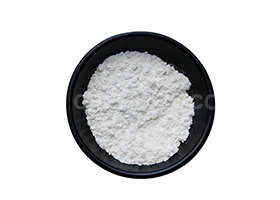What is Polyvinyl alcohol?
Polyvinyl alcohol (PVA) is a synthetic polymer that is soluble in
water. It is produced by the polymerization of vinyl
acetate and subsequent hydrolysis of the polymer. The hydrolysis process converts
the acetate groups into alcohol groups, resulting in a polymeric chain with repeating
alcohol units.
PVA is known for its excellent film-forming and adhesive properties. It is often used as a
component in adhesives, coatings, and films. PVA films are transparent and have a high
tensile strength, making them useful for various applications. PVA is also biodegradable,
which adds to its appeal in environmentally friendly applications.
One of the notable characteristics of PVA is its water solubility. When in contact with
water, PVA dissolves, forming a viscous solution. This property makes PVA widely used in
applications such as textile sizing, paper coatings, and as a component in detergents and
personal care products.
In addition to its solubility, PVA exhibits good chemical resistance, making it suitable for
use in coatings and barriers. It is also resistant to oils, greases, and organic solvents.
These properties make PVA versatile and applicable in various industries, including
packaging, textiles, paper, construction, and pharmaceuticals.
Furthermore, PVA can be crosslinked with certain agents to enhance its properties further.
Crosslinked PVA exhibits improved mechanical strength, thermal stability, and water
resistance, making it useful in applications such as membranes, gels, and drug delivery
systems.
Overall, polyvinyl alcohol is a versatile polymer with a wide range of applications due to
its film-forming, adhesive, solubility, and chemical resistance properties.
PVA 1788 & PVA 1799 Application:
PVA 1788 and PVA 1799 are commonly known as polyvinyl
alcohol (PVA) resins. PVA is a synthetic polymer that has a wide range of applications due
to its unique properties. Here's some information about the applications of PVA 1788 and PVA
1799:
1. Adhesives: PVA resins, including PVA 1788 and PVA 1799, are widely used in the formulation
of adhesives. They provide excellent bonding strength to various materials such as paper,
wood, fabric, and porous surfaces. PVA-based adhesives are commonly used in woodworking,
packaging, and paper industries.
2. Coatings: PVA resins can be used in the formulation of coatings and paints. They provide
good film-forming properties, adhesion, and resistance to water and chemicals. PVA-based
coatings are often used for applications such as paper coatings, textile coatings, and
surface coatings for wood and metal.
3. Textile Industry: PVA 1788 and PVA 1799 find application in the textile industry as warp
sizing agents. These resins are used to strengthen and protect the warp yarn during weaving
processes. PVA-based sizing agents provide improved weaving efficiency, good adhesion, and
easy removal during subsequent processing.
4. Paper Industry: PVA resins are utilized in the paper industry as additives for paper
coatings, surface sizing, and as a binder for pigment coatings. PVA improves the smoothness,
printability, and water resistance of paper, making it suitable for various printing and
packaging applications.
5. Emulsifiers and Dispersants: PVA 1788 and PVA 1799 can act as emulsifiers and dispersants
in various industries. They help in stabilizing emulsions and suspensions, allowing the even
distribution of ingredients in formulations such as paints, inks, and agricultural
chemicals.
6. Packaging: PVA films derived from PVA resins find application
in packaging materials. These films are transparent, flexible, and have good moisture
barrier properties, making them suitable for packaging food products, pharmaceuticals, and
other sensitive items.
7. Personal Care Products: PVA can be found in personal care products like hair sprays, hair
gels, and face masks. It provides film-forming properties, adhesion, and moisture retention,
helping to enhance the performance of these products.









